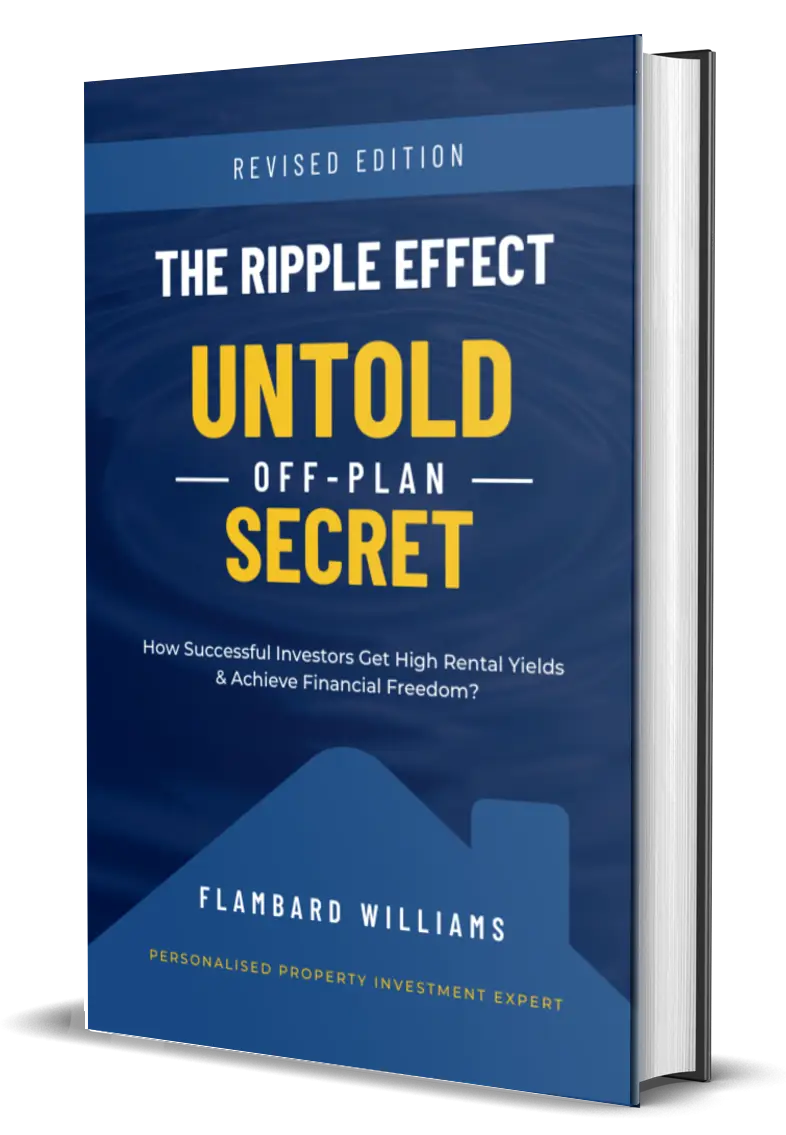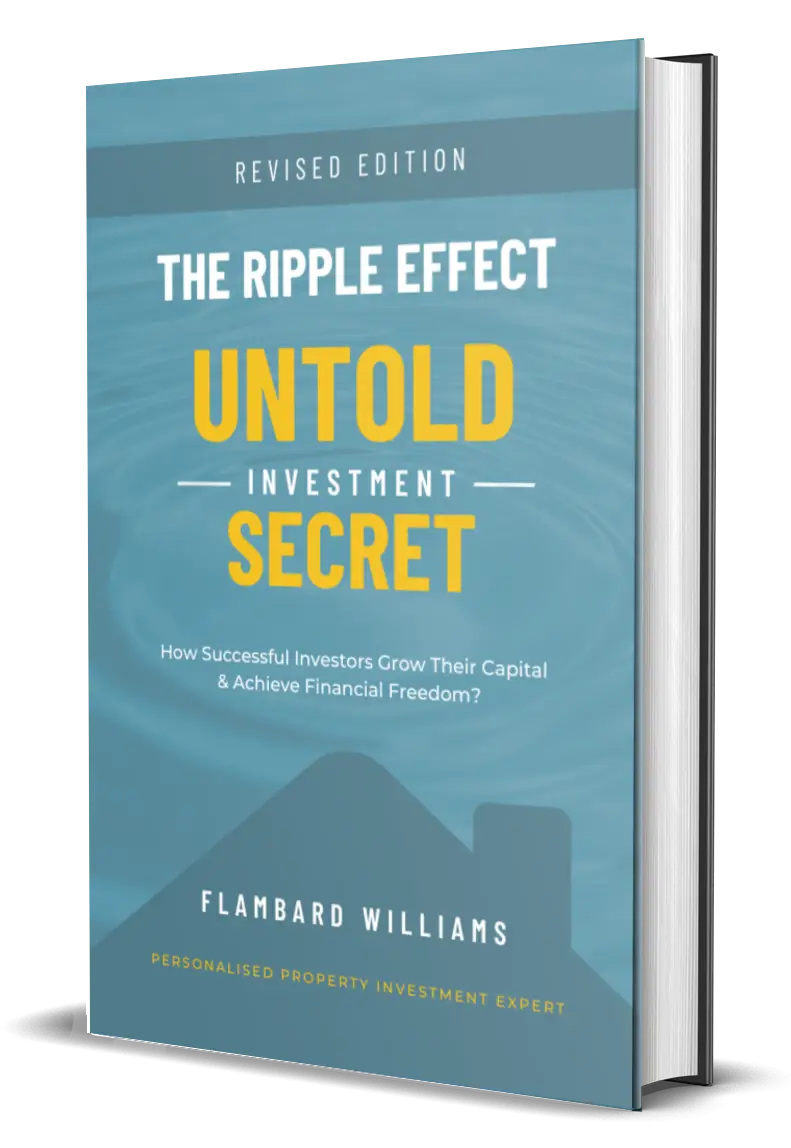So in this month’s webinar, we are looking at all the pitfalls of the property market. Now, wherever you put your money there are going to be negatives, however, the way I look at investing is that if I can accept the risks I then look at the advantages and if they suit what I am looking for then I push on.
For example, some individuals think by leaving their money in their savings accounts is the safest option, however, what they don’t realize is that if inflation is 1% and they are getting 0.1% interest in their account they are actually losing 0.9% year on year.
The stock market we have seen a huge crash back in March 2021 followed by a great upturn. The last 12 months epitomizes the stock market you can see great gains and huge losses within a short time.
The property market is no different, it too has its advantages and disadvantages and it is the pitfalls that many investors make which we will cover today.
Part 1 of the webinar is going to be about the pitfalls, part 2 is going to be about the flipside to the pitfalls.
Buy Property | Lettings | Short Term Lettings
The Pitfalls
Pitfall 1 – Liquidity or lack of
When you invest in the stock market or have your money in savings rates you will have pretty much immediate access to your funds. With the property market, you don’t. You have to wait for your property to sell, go through the legal process, and then you will get access to your funds.
This is something that has to be considered. We often have clients in their later years 80+ request information and the first thing we say is that they have to consider the liquidity of their investment.
Pitfall 2 – Not thinking about all costs
This is a big factor why investors don’t make as much as they first anticipated. Either clients who invest off their own back or rush in without considering everything make errors.
So costs can be any of the following:-
House insurance costs when buying a freehold property
Exterior and garden maintenance costs for a freehold
The service charge for leasehold (which includes exterior and communal area maintenance and buildings insurance)
Ground Rent (Typically 0.1% of the property price)
Tax (changes on if you in a ltd company or personal name)
Stamp Duty
Management and lettings fees
Mortgage
Pitfall 3 – Bad tenants
Your tenant is the lifeline of your property business, they are essentially your customer and they have to be nurtured. A bad tenant can be a nightmare experience and be one of the biggest pitfalls of your property. A bad tenant that does not pay, takes months and potentially needs legal action to remove them from your property can cost a great deal of money.
However, there are ways to mitigate this. The first comes down to your choice of property, if you buy a cheap property on the outskirts of a city rather than more central you are more than likely going to get a tenant who may not be able to afford the rental payments. So our advice is to buy properties where you know you will have a good tenant. You can get cheaper properties and take them to the council to get tenants and this is also a good option as the council is your tenant not the individual in it.
Also, vetting is a big plus point, we will ensure that we vet the tenants as much as possible aiming to mitigate any long-term issues.
Pitfall 4 – Void Periods
One thing that we have had to take into consideration over the last decade is void periods. All properties will have void periods even if it is for a week when one tenant leaves and the other enters. However, it is the 3-4 month void periods we need to avoid which can eat away at your yearly profit.
We, of course, feel that by purchasing in the city center you will get fewer void periods. I know a lot of you are thinking that due to COVID clients are moving out of city centers, whilst this may be true for buyers, we are aiming at a different demographic for our renters.
The best renters are young professionals who want to be in the hub of it and close to bars, restaurants, and shops, this is why we have had great uptake in all of our developments throughout COVID.
Pitfall 5 – Interest rate changes
Many clients look at the here and now. They work out their costs and base their affordability on this. However, the main reason why people lose properties and have to hand them back to the bank is when they don’t anticipate an interest rate rise. So let us say you have borrowed £200,000 and pay 2% interest then you are paying £4k a year for an interest-only mortgage, however, if the rates increase by just 2% then you are paying £8k a year interest which is a totally different dynamic.
Manchester Property | Liverpool Property
The Flipside
The flipside of lack of Liquidity
You won’t find the property market fall as the stock market does. We have seen two stock market crashes over the last 13 years and both times we saw around 30% falls over a period of weeks. You just don’t get this in the property market, the market is more stable over a longer period.
The flipside of Costs/Mortgage
Now the mortgage is something that although is a cost it is effectively free money. Let me explain.
When you have £50k in the bank you are making income on the £50k only. When you invest that £50k into the stock market and you make 10% (income and growth combined) you make £5k. However, with a property, you have your £50k which again if you make 10% income and growth you will make your £5,000, however, you have also got £150k extra from the bank that if you make 10% on you have £15,000 extra that you would not have got if you had put the money in the stock market or left it in savings. Yes, there will be interest coming out of the £15k but if you compare like for like you will still be better off getting a property.
The flipside of Interest rate charges
No matter how much preparation there is prior to the purchase we cannot predict interest rates. Our advice is to fix in the interest rate as long as possible. The reality is we are going to see interest rises at some point so anyone that fixes their rate will have a better chance of predicting their financials over the period they hold the investment.
If you have any questions please fill in your details below and we will be more than happy to help.
[gravityform id=”50″ title=”false” description=”false”]























 Exclusive Property Launch Invitations
Exclusive Property Launch Invitations Customised Market Reports
Customised Market Reports Exclusive Access to Off-Market Properties
Exclusive Access to Off-Market Properties Networking Events
Networking Events





